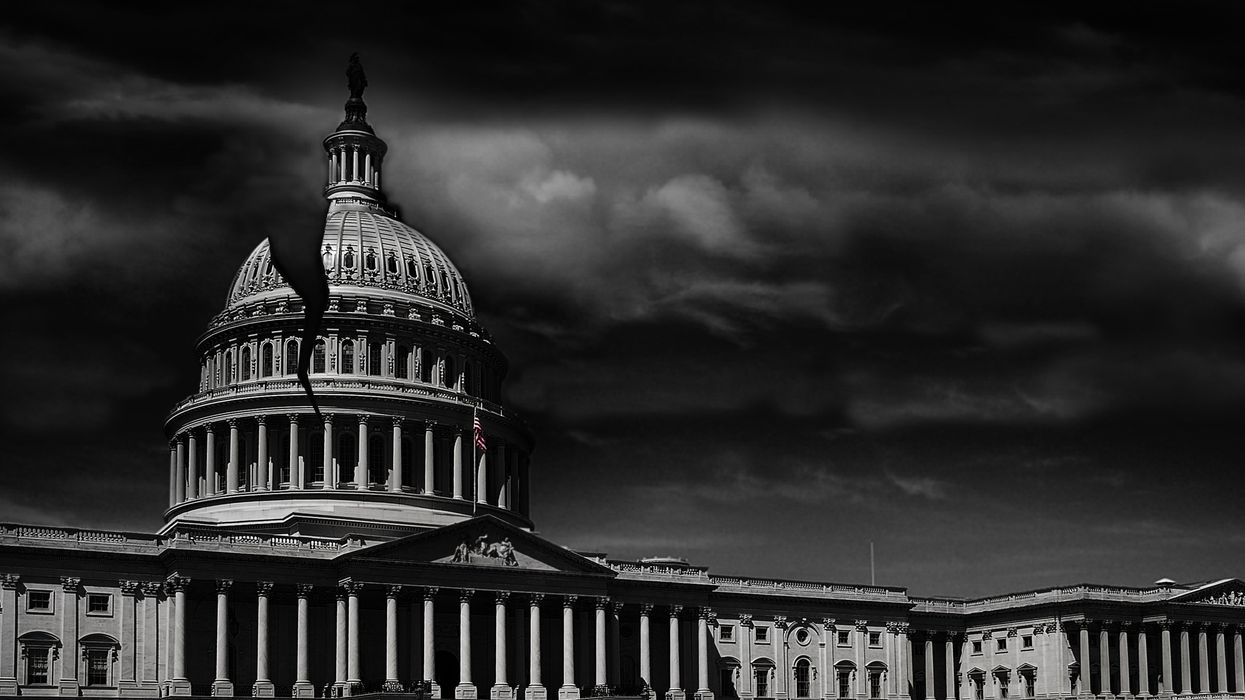Frazier is an assistant professor at the Crump College of Law at St. Thomas University. He previously clerked for the Montana Supreme Court.
Has it ever struck you as odd that cavemen didn’t have fire departments? After all, they discovered fire, right? The absence of this emergency service, though, makes a whole lot of sense given that cave folks weren’t in danger of burning anything down.
The upshot is that we’re only capable of designing emergency plans for the scenarios we’ve encountered or, at least, can imagine happening with some likelihood. So we don’t have much of an excuse for failing to plan for worst-case scenarios once we’ve experienced that storm, disaster, calamity, etc.
Just as cavemen had no reason to organize fire departments; the Founders had no reason to plan for Congress failing to operate. In fact, the Founders were scared more of legislative tyranny than legislative lethargy.
Pardon the brief lesson in constitutional design, but I promise it’s worth it.
In response to King George III’s manifold abuses, the Founding Fathers (understandably) became extremely opposed to excessive or unchecked power being held by the executive branch. That’s why states limited the powers available to their respective governors and why the Articles of Confederation (the predecessor to the Constitution) did not establish an executive branch. Welp. The Founders soon realized that their attempts to prevent one worst-case scenario (tyranny by a king) led to another (tyranny by legislatures).
Rather than sit on their hands, the Founders responded to yet another governance debacle by picking up a quill and drafting the Constitution. This time around they distributed power across three different branches –the legislative, the judicial and, yes, the executive. Based on their experiences with ambitious officials attempting to exercise their powers to the fullest extent possible, Hamilton, Madison and the rest of the crew created a system of checks and balances. Under this system, each branch received specific powers as well as specific ways to rein in any egregious acts by the others. What the Founders did not anticipate was a branch coming to an absolute standstill, especially the legislative branch – the one they had come to fear most.
Fast forward 200-plus years and the cave is now on fire – Congress has come to a halt. Consider that the 118th Congress barely managed to pass 27 bills last year, which makes it one of the least productive in quite some time. And the future doesn’t seem to promise any legislative giddyup for at least two reasons: In the short run, election years rarely lead to major legislative initiatives given a turn in congressional focus to securing votes at home rather than on the House floor; in the long run, the House seems destined to become more legislatively lethargic due to entrenched partisanship. According to political scientist Larry Sabato, “One growing trend in American politics is that fewer and fewer members of the U.S. House hold districts that the other party won for president.” In other words, red districts will stay red and blue will stay blue.
Something's got to give. In this era of a politically paralyzed Congress, the other branches have exceeded their intended roles in order to fill a legislative lacuna – or at least that’s the common perception. Concerns about activist judges and a jump in executive orders have spread on both sides of the aisle. The cumulative result is a system that’s operating in a mode the Founders didn’t anticipate; there’s no escape route for this scenario.
Rather than accept this fate, we need to exercise the same agency as our forefathers. Let’s restart conversations about term limits; let’s revive discussions about campaign finance reform; let’s explore means to increase the public’s ability to hold their respective members accountable for inaction. I’m not endorsing any of these approaches but I’m vehemently opposing the status quo.
We’ve been stuck in this emergency situation for too long. Thankfully, we’ve proven capable of planning for and putting out fires before. We can do it again.




















Trump & Hegseth gave Mark Kelly a huge 2028 gift